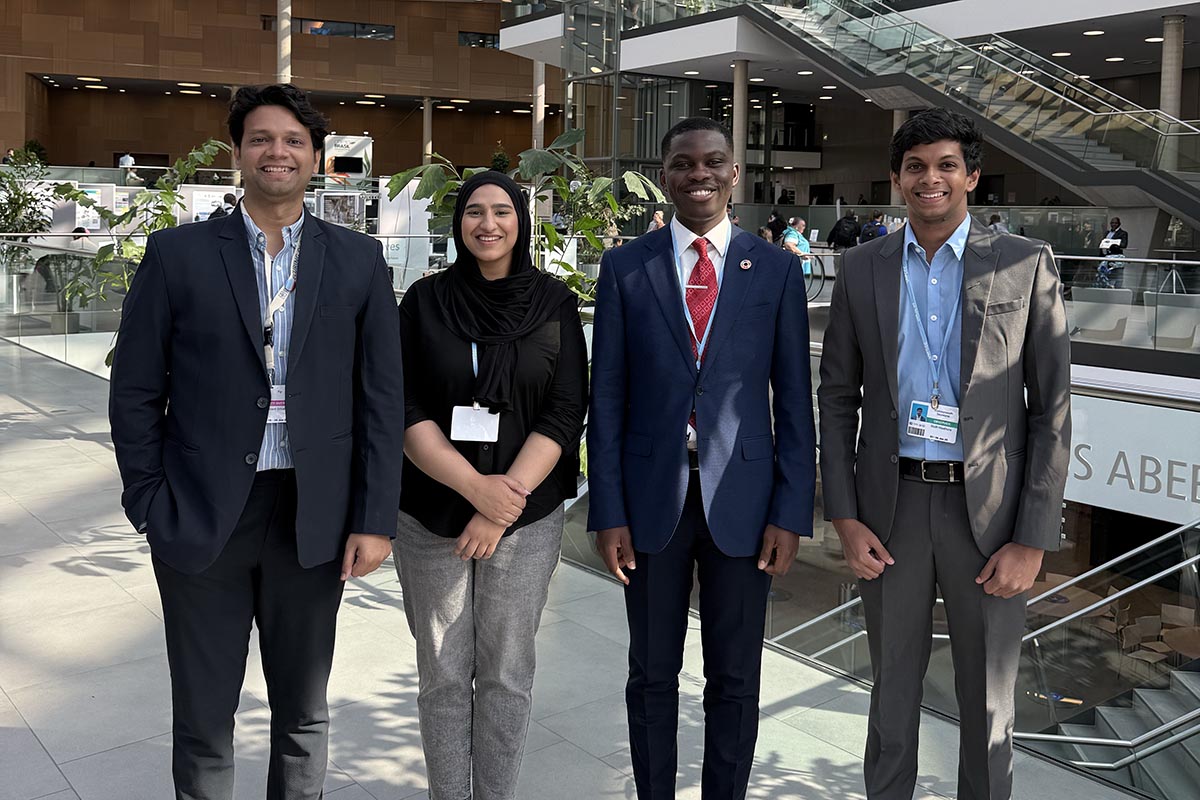AI in Sports: Ethical and Strategic Use Key for Sustainable Development
April 13by Ainesh Dey
photo caption: The team arguing against the motion won the 8th Commonwealth Debate on Sport and Sustainable Development
The 8th Commonwealth Debate on Sport and Sustainable Development held recently in London shed light on the potential of artificial intelligence (AI) to accelerate progress towards achieving the Sustainable Development Goals by 2030.
The motion under discussion, ‘Artificial Intelligence is the answer to accelerating the power of sport to help achieve the Sustainable Development Goals by 2030,’ sparked lively debate among experts in the field. Ultimately, the team advocating for greater ethical use of AI in sports emerged victorious, emphasizing the importance of leveraging technology within established frameworks.
The Debate, which coincided with the International Day of Sport for Development and Peace on April 6, served as an important platform to explore innovative strategies to harness the power of AI in sports for sustainable development. Rohn Malhotra, the Co-Founder and Managing Director of Sports TechX and a key member of the winning team, highlighted the opportunities presented by technology to propel progress towards the Sustainable Development Goals. His remarks underscored the transformative potential of AI when employed ethically and strategically in the realm of sports.
Sport has always had a unique ability to bring people together, regardless of their backgrounds or beliefs. It serves as a universal language that transcends boundaries and unites individuals in a common passion. The Commonwealth Deputy Secretary-General, Dr Arjoon Suddhoo, rightly emphasized this point in his remarks, highlighting the overarching power of sport to bridge divides and foster unity.
On a broader note, the establishment of the Commonwealth Artificial Intelligence Consortium (CAIC) by the Secretary-General further underscores the commitment to leveraging AI for the betterment of Commonwealth citizens, particularly the youth. By uniting global tech firms, research institutions, and non-profit organizations under a shared vision, the CAIC aims to harness the transformative power of AI in driving positive social development.
Speakers articulating their points of view on both sides, drew on the role of AI and its capacity to revolutionize the way sports are played, managed, and experienced, offering a multitude of benefits beyond entertainment and competition. Several also supported the premise that by integrating AI technologies into sports initiatives, organizations can enhance athlete performance, optimize training regimes, and improve decision-making processes. Moreover, AI-driven analytics can provide valuable insights into player statistics, game strategies, and injury prevention, thereby maximizing the efficiency and effectiveness of sporting activities.
Moreover, AI applications in sports extend beyond the realm of performance enhancement to encompass social impact and community development initiatives. Through AI-driven platforms, sports organizations can facilitate virtual coaching sessions, mentorship programs, and talent identification initiatives in underserved communities, thereby expanding access to sports education and training opportunities. By leveraging AI to democratize sports participation and talent development, stakeholders can empower individuals from diverse backgrounds to pursue their athletic aspirations and contribute to the larger goals of sustainable development.
Through forums like these, where experts and stakeholders converge to discuss the impact of AI in sports and society, we pave the way for innovative solutions and collaborations that can drive progress and inclusivity. As we navigate the evolving landscape of AI, it is vital to remain cognizant of its potential implications while actively exploring how this technology can be harnessed for the collective good.
Attending the debate was a truly enriching experience where I witnessed firsthand the unifying power of sport in fostering tolerance and promoting international peace and harmony. The discussions shed light on how sport serves as a binding force that transcends geographical boundaries and cultural differences, bringing people together on a common platform.
One aspect that stood out to me was the seamless integration of technological advancements in artificial intelligence within the realm of sports. The discourse on leveraging AI to enhance sporting infrastructure and optimize athlete selection processes underscored the potential of technology to revolutionize the sports industry and drive efficiency and performance to new heights.
The exploration of the social dimensions of sport and its role in shaping collective identities was particularly thought-provoking. The ethos of sport not only unites individuals in shared endeavors but also fosters a sense of belonging and community that transcends individual differences, emphasizing the importance of inclusivity and diversity in the sporting arena.
Reflecting on my experience at the debate, I left with a wealth of insights and contemplations. The intersection of sport, AI, and social development highlighted the interconnectedness of these realms and the potential for collaborative efforts to drive positive change and innovation. As we continue to navigate the evolving landscape of technology and sports, it is essential to harness these synergies for the greater good and to foster a more inclusive and equitable society for all.






